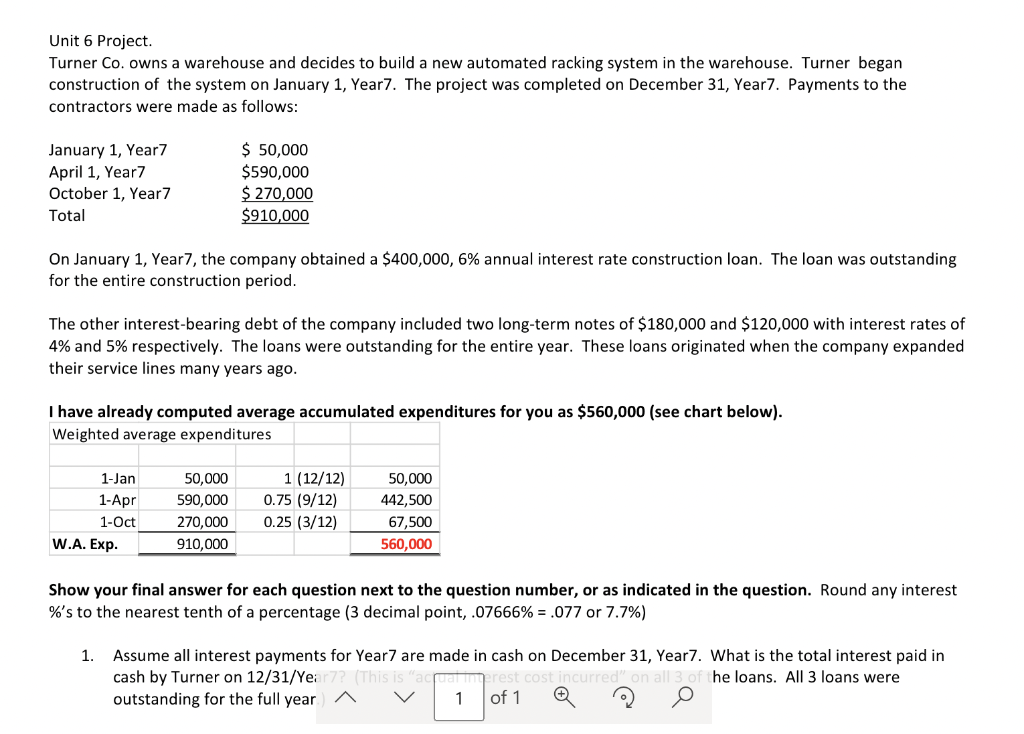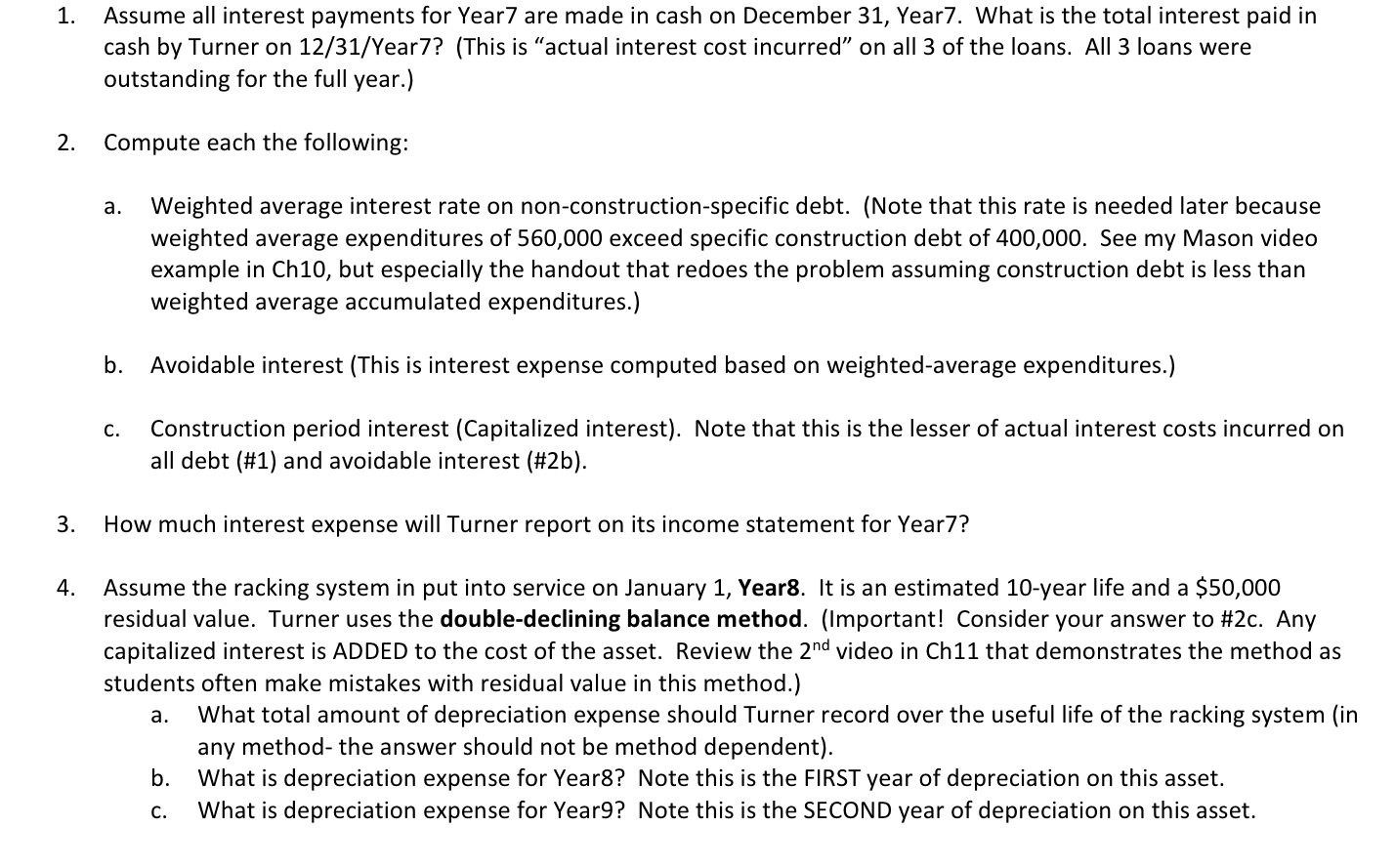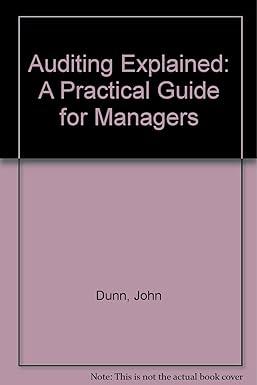

Unit 6 Project. Turner Co. owns a warehouse and decides to build a new automated racking system in the warehouse. Turner began construction of the system on January 1, Year7. The project was completed on December 31, Year7. Payments to the contractors were made as follows: January 1, Year7 April 1, Year7 October 1, Year7 Total On January 1, Year7, the company obtained a $400,000, 6% annual interest rate construction loan. The loan was outstanding for the entire construction period. The other interest-bearing debt of the company included two long-term notes of $180,000 and $120,000 with interest rates of 4% and 5% respectively. The loans were outstanding for the entire year. These loans originated when the company expanded their service lines many years ago. $ 50,000 $590,000 $ 270,000 $910,000 I have already computed average accumulated expenditures for you as $560,000 (see chart below). Weighted average expenditures 1-Jan 1-Apr 1-Oct W.A. Exp. 1. 50,000 1 (12/12) 590,000 0.75 (9/12) 270,000 0.25 (3/12) 910,000 50,000 442,500 67,500 560,000 Show your final answer for each question next to the question number, or as indicated in the question. Round any interest. %'s to the nearest tenth of a percentage (3 decimal point, .07666% = .077 or 7.7%) Assume all interest payments for Year7 are made in cash on December 31, Year7. What is the total interest paid in cash by Turner on 12/31/Year7? (This is "actuali erest cost incurred" on all 3 of the loans. All 3 loans were outstanding for the full year) A of 1 1 1. Assume all interest payments for Year7 are made in cash on December 31, Year7. What is the total interest paid in cash by Turner on 12/31/Year7? (This is "actual interest cost incurred" on all 3 of the loans. All 3 loans were outstanding for the full year.) Compute each the following: 2. 3. 4. Weighted average interest rate on non-construction-specific debt. (Note that this rate is needed later because weighted average expenditures of 560,000 exceed specific construction debt of 400,000. See my Mason video example in Ch10, but especially the handout that redoes the problem assuming construction debt is less than weighted average accumulated expenditures.) Avoidable interest (This is interest expense computed based on weighted-average expenditures.) Construction period interest (Capitalized interest). Note that this is the lesser of actual interest costs incurred on all debt (#1) and avoidable interest (#2b). How much interest expense will Turner report on its income statement for Year7? Assume the racking system in put into service on January 1, Year8. It is an estimated 10-year life and a $50,000 residual value. Turner uses the double-declining balance method. (Important! Consider your answer to #2c. Any capitalized interest is ADDED to the cost of the asset. Review the 2nd video in Ch11 that demonstrates the method as students often make mistakes with residual value in this method.) a. What total amount of depreciation expense should Turner record over the useful life of the racking system (in any method- the answer should not be method dependent). What is depreciation expense for Year8? Note this is the FIRST year of depreciation on this asset. What is depreciation expense for Year9? Note this is the SECOND year of depreciation on this asset. a. b. C. b. C








